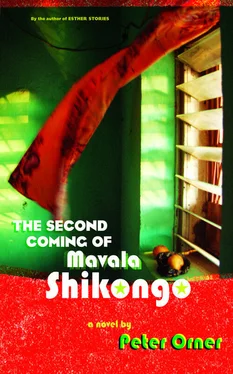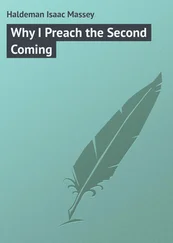The simple truth of it. Not food, not a place to sleep, only school. The principal shrugged, pleased they’d come to him instead of the priest. Had it been Father who sheltered these lambs, the principal would have been on the farm line to the police barracks in Karibib and those three might have been deported within a day, shipped back to more civil war, to Dr. Savimbi, in the back of a cattle lorry.
“There is room, children,” he said, “in our inn.”
For a week or so, they sat quietly in our classrooms. When there weren’t enough chairs, they sat on the floor. We gave them pencils and paper, but they rarely wrote anything down. They rotated from class to class like benevolent versions of the dreaded school inspectors who descended on Goas once a term with their checklists, rating us on the old Bantu education scale from Goed to Swak . They often started their days in Mavala’s class of sub b’s and ended them in Pohamba’s Standard Sevens, each day an entire trajectory of whatever we had (or didn’t have) to offer, which was probably more school than they’d had in mind. They didn’t talk to the boys or even among themselves. Even the squat one, after his initial boldness, settled down to the life of just another silent learner. Once, Mavala tried to talk to him, to ask him what happened to them. She said she might understand, but he only turned away without a word.
Out at the graves she said, “He only talks when he needs to. I forgot the virtue of that.”
“You don’t tell anything.”
She shrugged. It was a lying-down shrug, and the sand made a dull rasp.
“I’ve nothing to tell.”
“I don’t believe you.”
We never learned their names, or anything about what they’d been through. Of course, we had Obadiah’s radio and week-old newspapers. We had an idea. We could have imagined things if we were up to it. Soldiers tossing babies in the air and shooting them in front of their mothers. But who can truly see this?
They never lingered. The three of them arrived at school in the morning after the second triangle and left promptly after last class. At break, they went out into the veld by themselves.
In class, silent or not, the girl was the only lesson. You could smell the boys sweating over her. Her eyes had a kind of sad vagueness as she looked straight ahead at the board. She seemed unaware of the boys’ agitation. The only time she showed any real expression was when she looked at her brother. Sometimes, in class, she touched the side of his face, and the boys swooned. The squat one could obviously take care of himself. But of her timid brother — always next to her, his feet touching hers — she seemed to wonder, What will become of you?
When they were gone from us, a boy discovered they’d been living out by the road. Theofilus must have known this. We figured he also gave them food, and they may well have accepted it from someone as unobtrusive as Theofilus. He never mentioned it either way. But when they were among us, nobody, not even the most lawless of the Standard Sevens, followed them back to where they slept. The only way I can explain this is to suggest that for some reason all of Goas recognized — without it being decreed from on high — that a part of the veld out toward the road was, for a time, theirs, in a place where they were like stowaways.
They left us as abruptly as they’d come. Nobody chased them.
We rented a bakkie from Felix Desconde. According to Pohamba, Desconde was the richest man in Karibib, and he had a fleet of Toyotas he rented out at usurious prices. Desconde owned the grocery, the hardware, and the marble works on the edge of town. He was also a man of the people, and wanted to live among them, so he built the only two-story house in the location, a mock castle with a four-car garage, a razor-wire security fence, and eight roaming dogs.
All of us were going. Just as we were pulling away from Goas, Auntie ran — the first time anybody had seen this happen — and lunged at us. Her breasts caught on the open back gate of the bakkie, and we had no choice but to haul her up. As we rattled down the Goas road toward the C-32, we saw Miss Tuyeni out walking in the veld. She was becoming more ignored than Auntie. Alone, she looked more like Mavala than when they were near each other. They had the same shoulders. Vilho suggested we invite her along, but Pohamba didn’t hear him over the noise of the radio. As we passed her, Miss Tuyeni didn’t look at us. She stooped, took off a shoe, and jiggled a rock out of it.
The Erongo Snake Park was down the C-32 toward Otjimbingwe and run by an ancient Polish couple. Who knows how they got marooned at a tourist attraction on a road where not a single tourist ever strayed, but they’d been there since long before independence. A decrepit Mercedes was parked in front of a small flat house with the windows boarded up. The Poles were incredibly tiny, sun-shrunk people. The Mercedes was apparently their ticket office, as well as, perhaps, their house. They were both sitting in it when we pulled up. The snake park consisted of seven or eight glass boxes. The glass hadn’t been cleaned in years. It was hard to see the snakes. Inside the boxes were rocks and sand that looked very much like the rocks and sand outside the boxes. In one of them we could see, past the green slime of the glass, the outlines of two Neilson vipers looped together in a pretzeled twist.
“Do you think they are more bored with the box or with each other?” someone said.
“Each other.”
“The box.”
“Each other.”
We moved on to the next box, a lone giant python thick and sedentary as a car tire.
I remember very little else except for the heat and the overall wobbly drunkenness of the day and how the sun glinted against the glass of the boxes.
On the way back, Mavala put on Obadiah’s touring hat, an argyle pot lid-looking thing he said was most appropriate for motoring in Scotland. It blew off and sailed like a frisbee into the veld, but Pohamba wouldn’t stop for it. This was his trip. He’d rented the truck. He’d organized us. Now we were all exhausted and wilted and letting him down because we weren’t whooping it up anymore, and so he wasn’t stopping for any fucking Scottish hats.
Hey, Truelove, how’s she tasting?”
“I’m not answering that.”
“Come now, is she satisfying your meatful needs?”
“Kill yourself.”
“Suicide? What about my learners?”
“I’ll cover your classes.”
“What about the Pope?”
“He won’t care, one less pagan.”
“You think I’ve never been in true love, Truelove?”
It’s not a question, it’s a proclamation. I let it hang in the dark. Let him nail it to his forehead. Night is a hole I fall into, with papery walls and his voice is like a camera eye with a loudspeaker, as if I’m in some low-tech 1984. I wait for him to say something else. Maybe he’s gone to sleep. All bedsprings silent. No noise of his breathing. Nothing.
Us lying on Grieta backward. Mavala’s head is hanging off the front of the grave. There’s a scratch on her left cheek from a thorn. She’s eating cheese. She holds it out to me.
“No, thanks.”
“You don’t like Cheddar?”
“I do. I ate.”
“What did you eat?”
“Tuna and cabbage soup.”
“Who made the soup?”
“Dikeledi sent it over.”
“ Dikeledi, Dikeledi, Dikeledi . You men like them silent. Why am I so hungry all the time? These condoms. If I’m pregnant, I don’t want a kid that looks like old butter.”
Читать дальше












